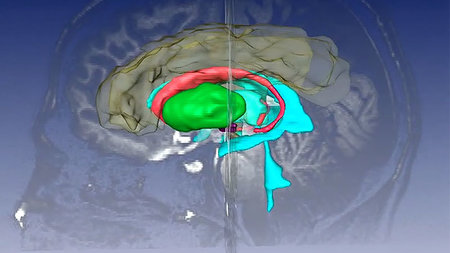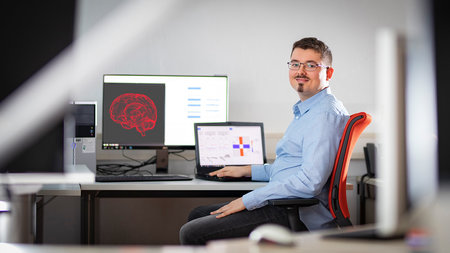Category learning
Category learning is the capacity of learning to group different stimuli by classes, such as grouping socks by color, or grouping different chairs and sofas by the class chair or sofa. The basal ganglia (BG) and the prefrontal cortex (PFC) are involved in category learning and we developed a novel neuro-computational model of the BG and the PFC for category learning.

The BG is a fast learner which quickly adapts to new task demands, while the PFC is a slow learner which should acquire complete category representations. The BG teach, via the thalamus, the PFC to slowly acquire complete category representations. The thalamus also integrates both the PFC category decision and the BG category decision. Our model has not only been able to classify real world images but also has replicated physiological data of a study with monkeys and helped to further understand these physiological data. Current work tries to expand this model for solving tasks that are more complex than the previous paradigms.

Associated projects
ESF project: Sozial agierende, kognitive Systeme zur Feststellung von Hilfsbeduerftigkeit (2016-2019)
DFG German-Japanese Collaboration Computational Neuroscience : The function and role of Basal Ganglia Pathways: From single to multiple loops. DFG HA2630/8-1 (2013-2016).
DFG grant : The cognitive control of visual perception and action selection. DFG HA2630/4-2 (2011-2014).
Selected Publications
Villagrasa, F., Baladron, J., Vitay, J., Schroll, H., Antzoulatos, E. G., Miller, Earl K., Hamker, F.H. (2018)
On the role of cortex-basal ganglia interactions for category learning: A neuro-computational approach
Journal of Neuroscience, 38(44):9551-9562. doi:10.1523/JNEUROSCI.0874-18.2018.
Read Article





